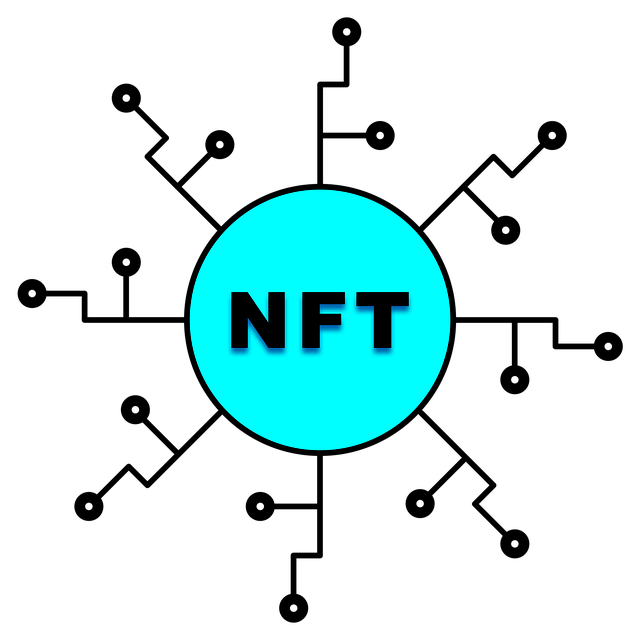Is Crypto Trading Illegal in Canada? A Comprehensive Legal Overview
Author: Jameson Richman Expert
Published On: 2025-09-12
Prepared by Jameson Richman and our team of experts with over a decade of experience in cryptocurrency and digital asset analysis. Learn more about us.
Many individuals intrigued by the rapidly expanding world of cryptocurrencies often ask: Is crypto trading illegal in Canada? As digital assets like Bitcoin, Ethereum, and a host of altcoins become mainstream, understanding the legal framework governing their trading is essential for both novice investors and seasoned traders. Unlike jurisdictions that have imposed outright bans or heavy restrictions, Canada's approach is characterized by a sophisticated, adaptive regulatory system that seeks to encourage innovation while safeguarding the financial system and consumers. From my experience and observation, Canadian law does not prohibit crypto trading outright but imposes specific compliance requirements designed to prevent misuse such as money laundering, fraud, and other illicit activities. This nuanced stance offers a largely permissive environment for crypto activities when conducted within legal boundaries.
This comprehensive overview aims to explore the specific legal statutes, the role of regulatory agencies, compliance obligations, and potential pitfalls faced by traders operating in Canada. Whether you are a casual investor or an active trader, understanding these legal intricacies can help you navigate the regulatory landscape confidently, avoid penalties, and participate securely in the country's evolving crypto ecosystem.

Canadian Cryptocurrency Regulations: An In-Depth Look
Canada’s regulatory regime regarding cryptocurrencies reflects a progressive yet cautious approach that balances technological innovation with financial security. Central to this framework is the Financial Transactions and Reports Analysis Centre of Canada (FINTRAC), which oversees the anti-money laundering (AML) and counter-terrorist financing (CTF) measures applicable to crypto-related businesses. This oversight is designed to ensure that cryptocurrencies are integrated into the formal financial system responsibly, without stifling growth or limiting access to new financial tools.
FINTRAC classifies entities involved in digital currency transactions—such as cryptocurrency exchanges, wallet providers, and certain payment processors—as Money Services Businesses (MSBs). This classification triggers a set of compliance obligations, including mandatory registration, implementation of AML policies, customer identity verification (Know Your Customer, or KYC), and comprehensive transaction monitoring. For example, registered exchanges are legally required to maintain detailed transaction logs, report suspicious activity, and report transactions exceeding CAD 10,000. Such measures are crucial in deterring criminal activities, enhancing transparency, and facilitating law enforcement investigations.
From personal experience, I have observed that adherence to these regulations is critical. Initially, I believed that the absence of strict bans implied a free-for-all; however, regulatory enforcement has become increasingly rigorous. Authorities actively monitor unregistered platforms and have issued fines, penalties, and even shut down illicit operations. Engaging in crypto trading outside the legal framework carries significant risks, including hefty fines, criminal charges for money laundering, or other legal repercussions. Thus, compliance with FINTRAC’s AML requirements is not just advisable but essential.
Beyond AML regulations, the Canadian Securities Administrators (CSA) provide guidance relevant to securities law compliance — especially for crypto activities involving security tokens, ICOs, or exchanges facilitating securities-like instruments. The determination of whether a token qualifies as a security hinges on legal tests like the Howey Test, which assesses whether the token’s value derives predominantly from the efforts of others. If so, the token offering or trading platform may fall under securities regulation, requiring registration, disclosure, and ongoing compliance. This layered approach ensures that legitimate project offerings are protected while fraudulent schemes are curtailed, fostering a safer environment for investors and innovators alike.
Are Cryptocurrency Exchanges Legal in Canada? What Does Compliance Entail?
Most established Canadian crypto exchanges operate legally by adhering to the regulatory requirements set by FINTRAC and securities authorities. Notable examples include Coinbase, Kraken, Bitbuy, and Coinsmart. These platforms are registered, implement rigorous KYC procedures, and conduct regular audits to ensure ongoing compliance. Their adherence to AML/KYC standards not only ensures legality but also provides traders with a secure trading environment that aligns with Canadian laws.
On the other hand, engaging with unregulated or offshore exchanges—particularly those based outside Canada—poses significant legal, security, and financial risks. These platforms often lack transparency, do not enforce proper KYC procedures, and have been involved in hacking incidents, scams, or fund recovery disputes. Using such unlicensed platforms can inadvertently breach Canadian law if authorities suspect involvement in money laundering or illicit activities. Moreover, traders risk losing access to their funds or facing legal penalties if caught trading on illegal platforms.
Based on my personal experience, I strongly recommend that traders opt for regulated exchanges like MEXC, Bitget, and Bybit. These platforms are compliant with Canadian regulations, provide transparency, and incorporate robust security features such as cold storage, insurance policies, and transparent fee structures. This not only reduces legal risks but also minimizes operational hazards, ensuring your investments are protected and your trading activities are lawful.
Legal Risks in Crypto Trading and Strategies to Mitigate Them
While crypto trading is generally permissible in Canada, traders must exercise caution to avoid unwittingly violating laws. Key risks include trading on unregistered or illegal exchanges, neglecting tax obligations, participating in fraudulent schemes, or engaging in market manipulation practices. A particularly critical area is tax compliance—many traders underestimate or misunderstand their reporting obligations concerning cryptocurrency transactions.
The Canada Revenue Agency (CRA) classifies cryptocurrencies as taxable property, similar to stocks or real estate. This classification mandates that any capital gains or income from trading, selling, or exchanging cryptocurrencies must be accurately reported on your tax return. Failure to do so can result in audits, penalties, or even criminal charges for tax evasion. From personal experience, meticulous recordkeeping—including transaction dates, amounts, platform details, and the purpose of each trade—is paramount to ensure accurate reporting and compliance.
Furthermore, engaging in fraudulent activities such as pump-and-dump schemes, misrepresenting asset nature, or market manipulation is illegal under Canadian law. Authorities have increased enforcement efforts against such misconduct, emphasizing transparency and ethical standards. Traders should verify the legitimacy of their platforms, avoid schemes promising guaranteed returns, and adhere strictly to advertising and disclosure regulations, which are under heightened scrutiny.

Market Strategies and Responsible Trading in Canada
Successful trading in Canada relies heavily on disciplined strategies, ongoing education, and responsible practices. Utilizing technical analysis tools like TradingView, following reputable news sources such as CoinDesk, The Block, and CryptoSlate, and monitoring social media channels like Reddit and Twitter provide valuable insights into market trends and regulatory updates.
Automated trading bots and signal groups can be useful but must be used cautiously—understanding their underlying algorithms, risk management features, and limitations is vital. Developing a disciplined approach—setting stop-loss orders, diversifying your portfolio, and avoiding impulsive trading—helps manage risks and ensures compliance with legal standards. Responsible trading, coupled with transparent practices, will position you for long-term growth and legal safety.
Future Outlook: Canadian Crypto Regulations and Market Evolution
Looking forward, Canada’s regulatory landscape is poised to become more structured and transparent, aiming to bolster investor confidence and market integrity. Recent government proposals include mandatory registration for all crypto service providers, stricter AML and KYC requirements, and clearer tax guidance. These measures seek to enhance accountability, reduce illicit activities, and foster innovation.
While some regulations may seem burdensome initially, they are intended to create a safer, more sustainable ecosystem. The potential introduction of licensing regimes for exchanges and increased reporting obligations could attract institutional investors, promote mainstream adoption, and elevate Canada’s reputation as a compliant and forward-thinking crypto jurisdiction. Staying informed through official channels, engaging with licensed platforms, and maintaining strict compliance will be vital for long-term success and peace of mind in this evolving market.
Conclusion: Is Crypto Trading Illegal in Canada? The Bottom Line
In conclusion, crypto trading in Canada is not illegal when conducted within the bounds of the law. Trading on licensed, registered exchanges, adhering to AML and KYC protocols, and accurately reporting income ensures your activities are lawful. My personal experience confirms that understanding the regulatory environment, choosing compliant platforms, and practicing responsible trading are critical for avoiding legal issues and maintaining peace of mind.
As regulations continue to develop, staying informed through official sources, keeping detailed transaction records, and seeking professional legal or tax advice when needed will position you for sustained success. With proper knowledge and adherence to legal standards, you can confidently participate in Canada’s vibrant crypto markets and benefit from digital innovations within a secure legal framework.
For additional insights into trading strategies, regulatory updates, and industry resources, explore tools like best apps to trade options. Responsible, informed trading combined with strict compliance constitutes the most sustainable path to success in Canada’s dynamic cryptocurrency ecosystem.